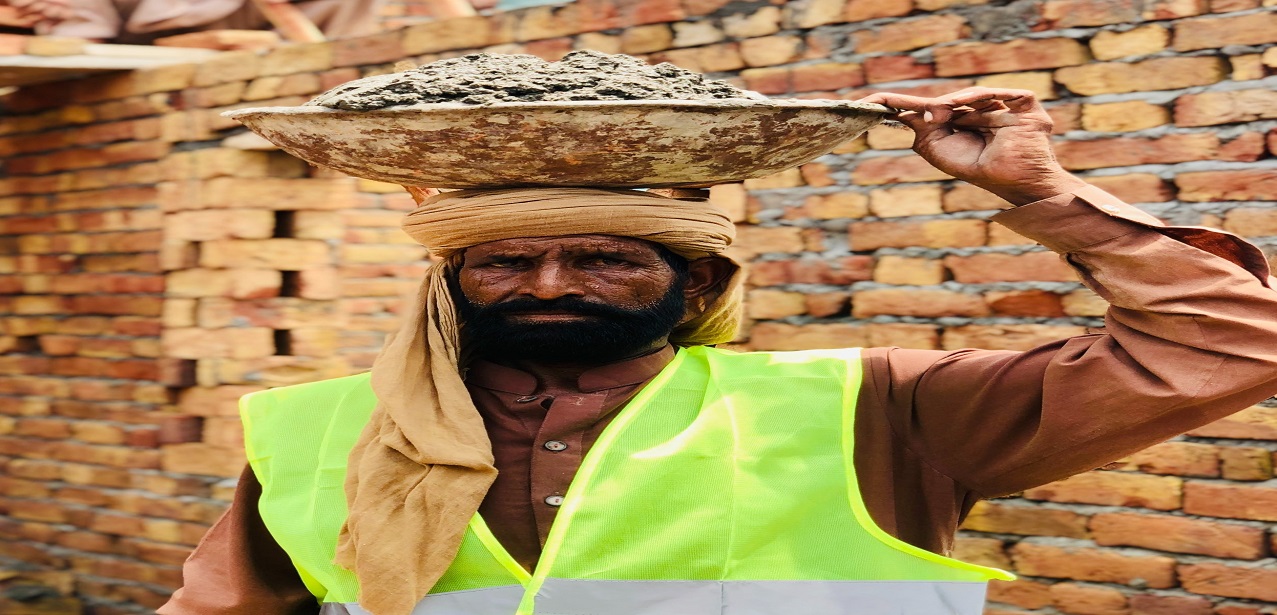Special Offers




Special Offers





What is Masonry?
Masonry is a construction technique that involves the assembly of structures using individual units, typically bricks, stones, or concrete blocks, held together with mortar. It is a durable and versatile method widely used in buildings, walls, and monuments. Masonry's strength and aesthetic appeal make it a fundamental component of architectural design.
Importance of Masonry in Housing Construction
Masonry plays a pivotal role in home construction due to its numerous advantages. It offers structural integrity and durability, ensuring homes can withstand various weather conditions and last for generations. Masonry also provides excellent insulation, enhancing energy efficiency. Moreover, it adds aesthetic value, allowing for versatile designs and attractive finishes. Its fire resistance and low maintenance requirements make it a preferred choice for homeowners seeking a secure and long-lasting investment in their dwellings.
Choosing the Right Masonry for Your Home Construction in India
When it comes to constructing a home in India, one of the most critical decisions you'll make is choosing the right masonry materials and techniques. India's diverse climate, cultural preferences, and building codes all influence this choice. Here's a comprehensive guide on selecting the ideal masonry for your home construction in India:
**1. Climate Considerations:**
India experiences a wide range of climates, from the arid deserts of Rajasthan to the tropical regions of Kerala. Your choice of masonry should align with the local climate. In regions with heavy rainfall, consider brick or concrete block construction for better water resistance. In arid areas, materials like stone may be more suitable.
**2. Budget Constraints:**
Your budget will significantly impact your choice of masonry. Brick construction is often economical, while stone is typically more expensive. You'll need to strike a balance between cost and the desired aesthetic and structural qualities.
**3. Aesthetic Appeal:**
Masonry contributes to the visual appeal of your home. In India, different regions have unique architectural styles and preferences. For instance, Rajasthan is known for its intricate stone architecture, while Bengal often uses clay bricks. Select masonry materials that resonate with the local architectural heritage and your personal taste.
**4. Structural Strength:**
Ensure the masonry material you choose meets the structural requirements of your home. For taller buildings, consider reinforced concrete or concrete blocks, as they offer greater structural strength. For low-rise structures, traditional brick or stone masonry might suffice.
**5. Maintenance and Longevity:**
Consider the long-term maintenance and durability of the chosen masonry. Stone and brick masonry often require less maintenance compared to wood or other materials. Ensure the masonry you select can withstand India's monsoons and extreme weather conditions.
**6. Energy Efficiency:**
With a growing emphasis on sustainable construction, consider the thermal properties of your chosen masonry. Insulated concrete block or brick walls can help regulate indoor temperatures, reducing the need for excessive cooling or heating.
**7. Local Building Codes:**
Each Indian state may have its building codes and regulations. Ensure that your choice of masonry complies with these codes and standards. Consulting with a local architect or builder can provide valuable insights.
**8. Environmental Impact:**
Sustainable construction practices are gaining momentum in India. Investigate whether your masonry choice aligns with eco-friendly construction principles. Materials like compressed earth blocks or fly ash bricks can be more environmentally responsible options.
FAQS Related Masonry selection
**1. What are the most commonly used masonry materials in Indian home construction?**
In India, some of the most common masonry materials include clay bricks, concrete blocks, natural stone, and AAC (Autoclaved Aerated Concrete) blocks. Understanding their characteristics and suitability is crucial when choosing the right material.
**2. How does the local climate influence the choice of masonry?**
The local climate can impact the choice of masonry due to factors like temperature extremes, rainfall, and humidity. Consider whether the material provides adequate insulation, water resistance, and durability in the specific climatic conditions of your region.
**3. What is the cost difference between various masonry materials, and how should budget affect my decision?**
Different masonry materials vary in cost. Clay bricks are often more affordable compared to natural stone. It's essential to balance your budget with your desired aesthetics and structural requirements to make an informed decision.
**4. Are there sustainable and eco-friendly masonry options for home construction in India?**
Sustainable construction is gaining importance in India. Explore masonry options that are environmentally friendly, such as using fly ash bricks, compressed earth blocks, or recycled materials. These choices can reduce the environmental impact of your construction project.
**5. How can I ensure that my chosen masonry complies with local building codes and regulations?**
To ensure compliance with local building codes and regulations when choosing a masonry contractor, follow these steps. First, research the specific codes in your area, often available on your city or county's website. Next, ask potential contractors about their knowledge of these codes and their previous experience with compliant projects. Finally, request references and check for any past violations or issues related to building codes. This due diligence will help you hire a qualified masonry contractor who adheres to local regulations.
Conclusion
Choosing the right masonry for home construction in India is a multifaceted decision that demands careful consideration of various factors. From climate and budget to aesthetics and sustainability, every aspect plays a vital role. By understanding your specific needs and consulting with experts who are well-versed in local building practices and regulations, you can make an informed choice. The right masonry not only ensures structural integrity but also enhances the beauty, durability, and eco-friendliness of your dream home in the diverse and culturally rich landscape of India.
Explore the key steps of Home Construction from concept to completion